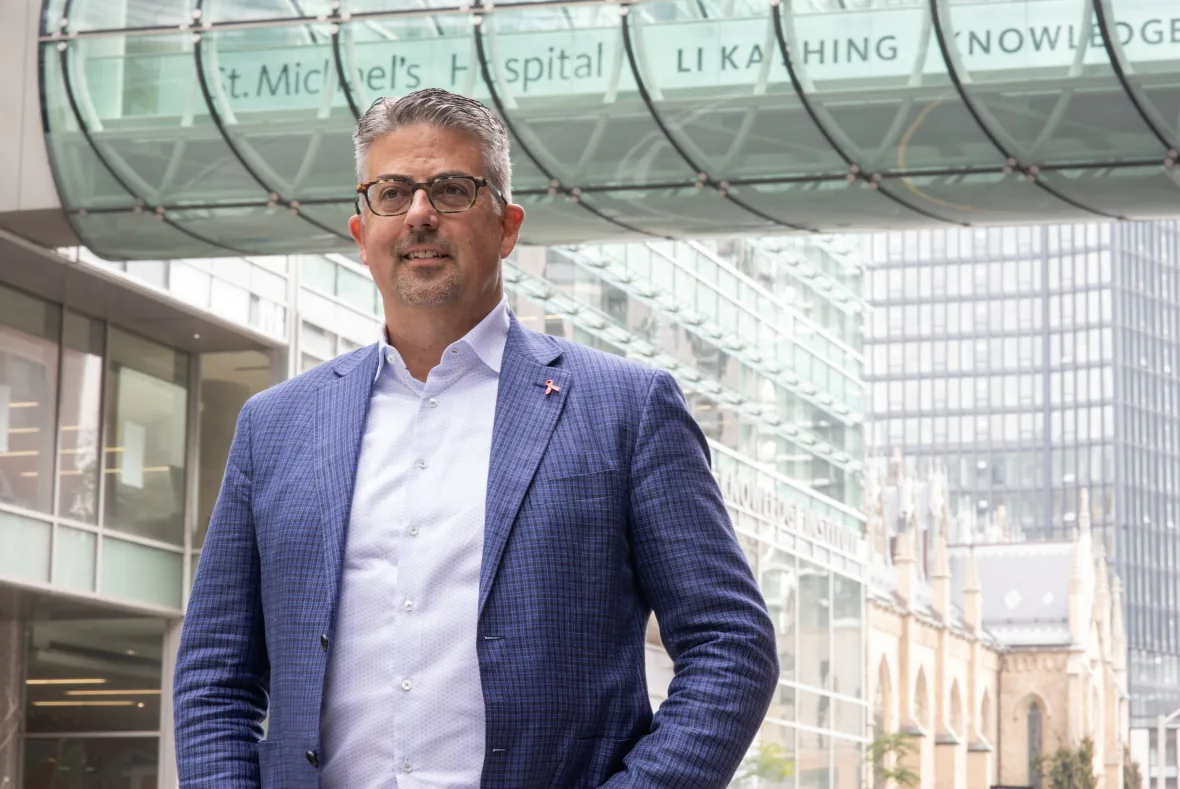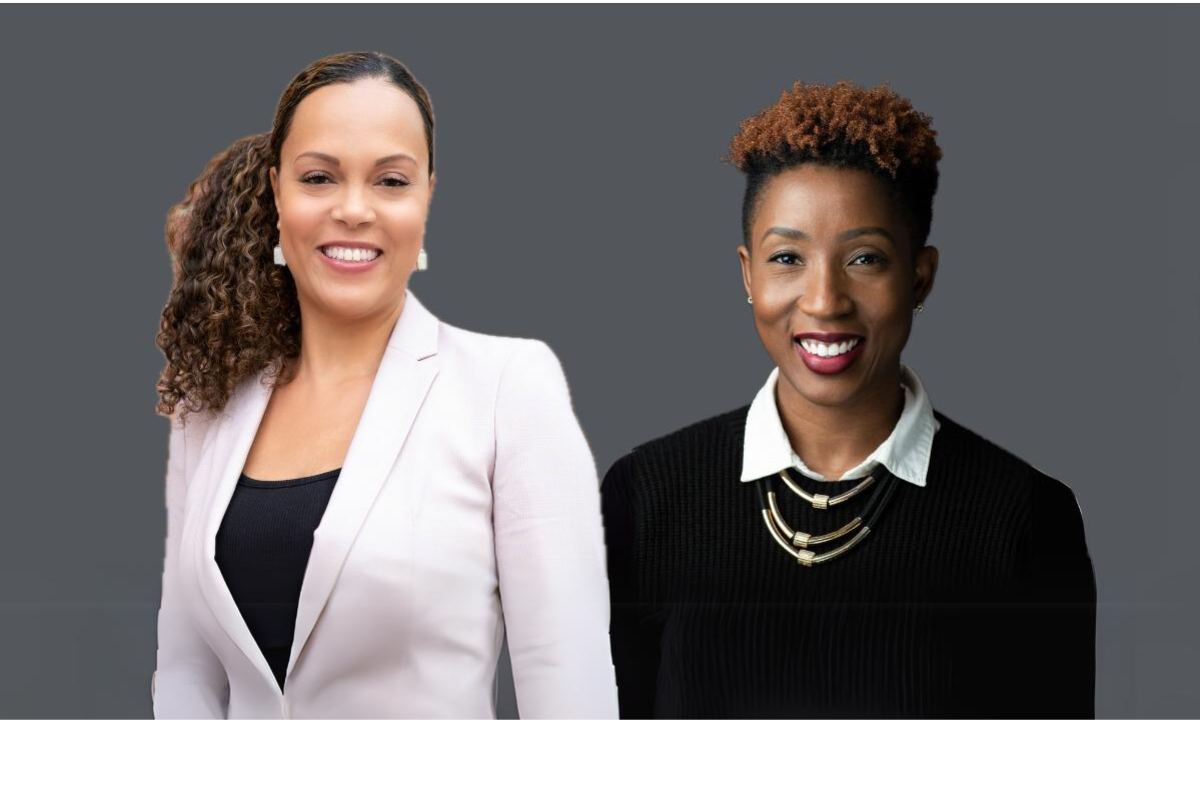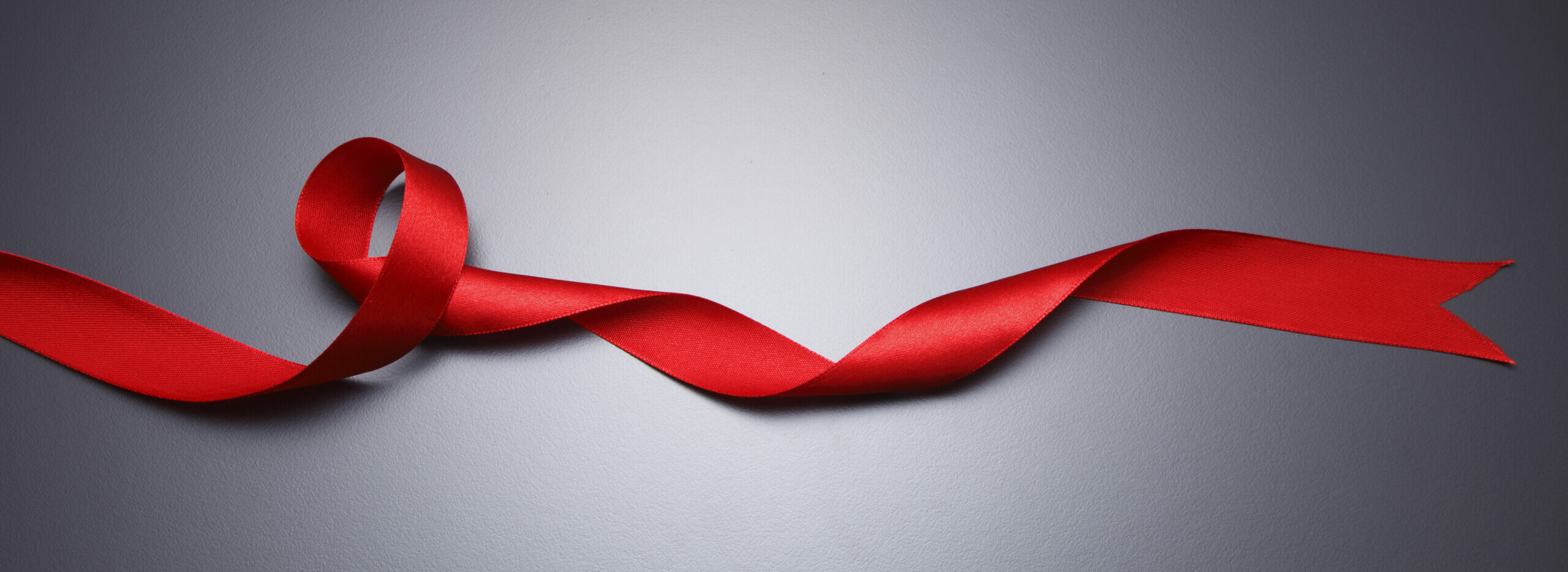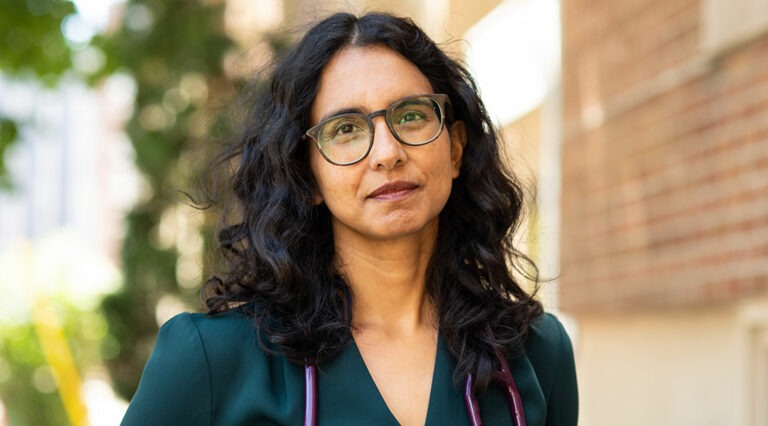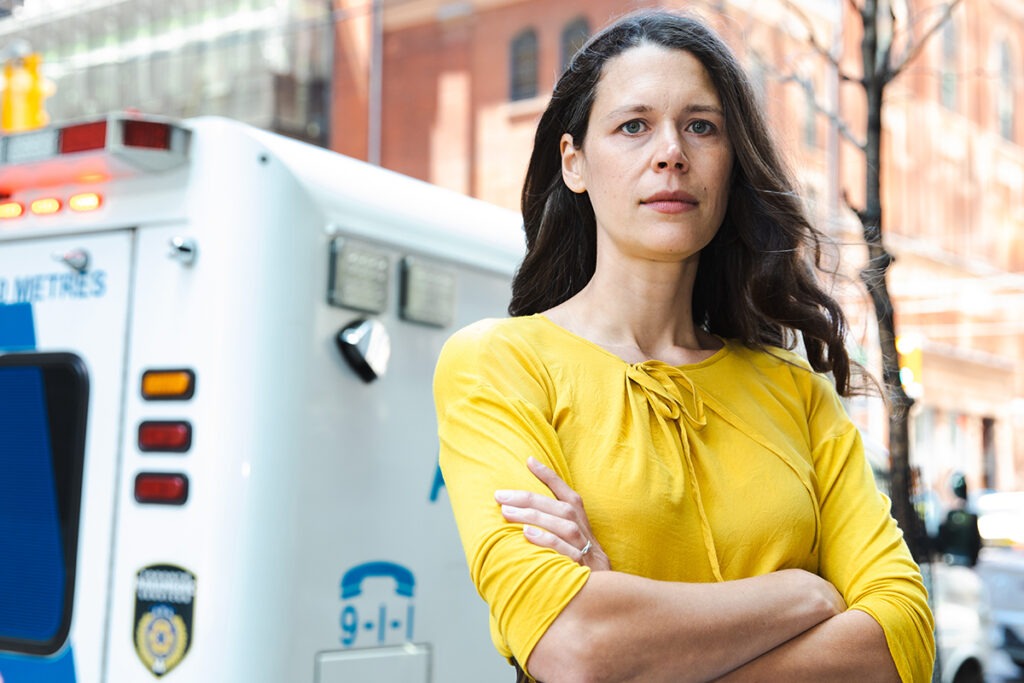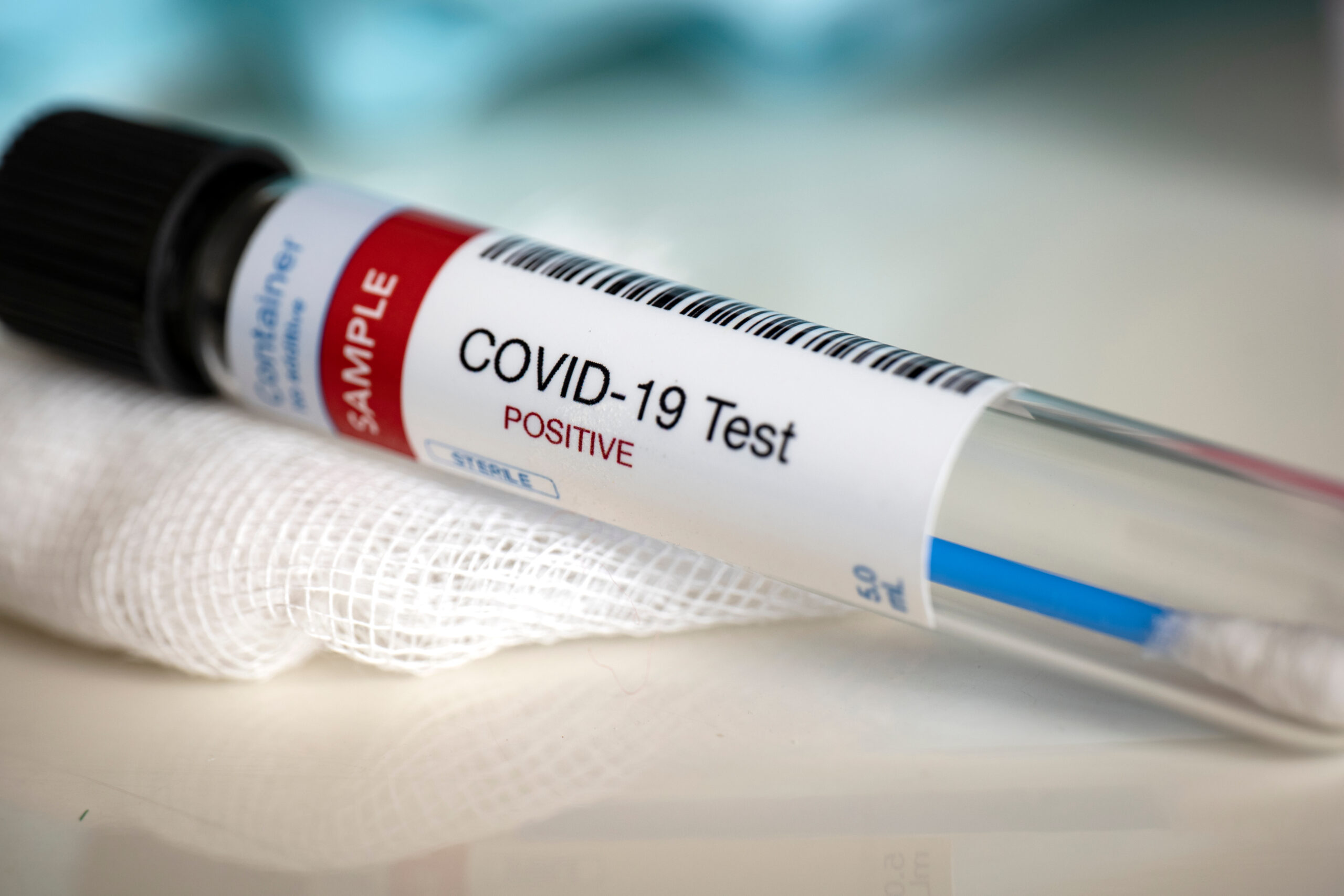Federal funding for HIV self-testing kits is coming to an end. Dr. Sean Rourke spoke to The Canadian Press about why the program he’s helped lead has been so important and that stopping it doesn’t make sense.
Author: Samira Prasad
“You can’t always know what you can achieve unless you can see the possibilities:” Denese Frans-Joseph in conversation with Christina Salmon
In celebration of Black History Month, MAP Manager of Research Programs and Partnerships Christina Salmon sat down with Denese Frans-Joseph to talk about Denese’s role as MAP’s Research Equity Specialist, her goals for the institution, and her advice for young Black professionals.
Christina: Hi Denese, It is wonderful to have this time to speak with you today. I want to highlight that you are MAP’s first research equity specialist, and we are also incredibly lucky to have you on our team at Li Ka Shing and at MAP. Could you tell us a little bit about your roles here?
Denese: My role as Research Equity Specialist is to co-develop and lead our equity, diversity, and inclusion related initiatives for the research institution and community. Within my responsibilities, I co-lead the Research Equity, Diversity, and Inclusion Task Force (REDI) at the Li Ka Shing Knowledge Institute, and I also co-lead the Anti-Racism and Equity Advisory (AREA) at MAP. I get to work with you, which I am so grateful for, and I get to work in collaboration with some really wonderful folks at MAP and the Li Ka Shing Knowledge Institution. I am really grateful to be in this space because I am surrounded by a lot of beautiful ideas and passion, and a real drive to create change here. So I am really happy to be here.
Christina: Tell us more about your vision for MAP’s Anti-Racism and Equity Advisory (AREA)?
Denese: I really envision AREA as a space to continue to develop and cultivate a culture where diverse voices are valued here, and a place to create meaningful change for both staff and the community being served through the research done here at MAP. I’m hoping to strengthen our capacity for work around anti-racism and social justice, and to be a leader here to influence the work we do.
Christina: Can you tell us a little bit about what attracted you to a career in anti-oppression and anti-racism?
Denese: I didn’t have a specific goal to end up in research, but I know that the passion for this work is in my blood! I come from family of powerful women who are passionate about community and social justice. I was really inspired by my grandmother who was a public health nurse and midwife back in Jamaica. That really trickled down to my mom, my sister and myself. My mom worked as a social worker, and worked with newcomers, youth, and the unhoused. She always had a passion for helping the community, and especially our community, the Black community, because she really knew the barriers to surviving and thriving that people face in Toronto, and in Canada. We have always had conversations in our home about anti-racism and anti-oppression, so I am passionate about helping my community thrive, as well as those who experience marginalization due to the systems we live in.
Christina: Do you have advice for young Black professionals who are entering or considering a similar career? What has helped you along the way?
Denese: My pathway to this career wasn’t linear. I originally thought I wanted to be an obstetrician, and there wasn’t much conversation while growing up around what else I could do. So my advice is find your passion, which is a luxury that you don’t always have while growing up in an immigrant family. I had to try many things and volunteer many places to find my passion for health equity and research. Find what really inspires you, and that will lead you to where you are supposed to be. I would also encourage folks to find a mentor, find people that support you and speak up for you – it is really important to have guidance. I would also suggest building a network – a network of people who have the experience you are looking to gain, who will invite you to the table, and create the tables you want to sit at.
I would also say to not be afraid to speak up. Being in the research world is challenging, and the work we are doing is unconventional. We are focusing on deconstructing the world as we know it, decolonizing, and that change doesn’t happen unless you speak up.
Lastly, I would say take care of yourself. This work will require a lot from you. Find joy, because you can’t pour from an empty cup, so you have to fill yours first.
Christina: The theme of 2024 Black History Month is “Black Excellence: A Heritage to Celebrate; a Future to Build”. What do you think academic institutions could be doing more of, to help clear the pathways for Black excellence and futures?
Denese: I think that academic institutions need to prioritize a few key areas to support the development and excellence of Black students and researchers. Representation matters, it matters to see someone who looks like you doing the work you want to do. Institutions need to provide supports tailored to the needs and challenges of Black students, and create opportunities for Black students, which we are doing here with our MAP Summer Student Program. Institutions also need funding for programs, mentorship, and career advising that is culturally safe and competent. Often the support that Black students receive is insufficient, and they are funneled into non-academic programs or stereotypical careers. Institutions also need to ensure that their curriculum is diverse, with diverse histories, and to include contributions from successful Black individuals across all disciplines. Doing this would really challenge the stereotypes that exist for us. You can’t always know what you can achieve unless you can see the possibilities, and you can learn about the possibilities.
Academic institutions need to create spaces that celebrate the diversity of the students they are supporting, and they need to embody and operate from an anti-racist framework. They need to focus on actively fighting against racism and discrimination that occurs in their space, and that means committing to trainings, education, and building accountability measures – which something we are wanting to do with AREA for this institution. So I think committing to these things would create spaces where Black students and researchers can really thrive and feel valued, respected and supported.
Christina: Thank you so much for everything you’ve shared so far, and I’ve loved hearing more of your story and teachings. I think it is also really important to also acknowledge that despite racist people and systems, we are also thriving, we are great – and those things are not mutually exclusive. You can be powerful and do this work, but also be thriving. So with that being said, what does Black joy mean to you?
Denese: Black joy is powerful – powerful ability to thrive in the face of adversity. Finding moments of happiness and celebration despite the systemic barriers and injustices we often face. Black joy is laughter shared between friends and family, it’s the food and the music and dance. It is the strength of our communities, it’s a form of resistance against the forces that try to limit our potential, which is something we have had to deal with for centuries.
I also feel that embracing our Black joy is finding moments of happiness in our everyday lives, as we defy the stereotypes that often seek to define us by our pain and struggle. That is something that I learned from Saidiya Hartman, she talks about how Blackness is often tied to pain and struggle, and that is something I want to move away from.
Black joy is our communities, our place of comfort and authenticity, and knowing that we have home with each other, in our cultures, in our traditions. Black joy is really tied to our radical self-love, and our defiance and our liberation. It is our unwavering love for each other; it is strength, empowerment, and beauty. It is all these things in a world that seeks to silence us, Black joy is the light in the darkness.
Denese Frans-Joseph (she/her) identifies as Canadian – Ghanaian – Jamaican and is a wife and mom to an amazing toddler. She is a womxn’s health advocate, passionate about health equity and community capacity building. With over 10 years of experience in health promotion, program evaluation, project management, and community-based research and development, her work is centred on an anti-racist and anti-oppressive framework and is dedicated to addressing individual, social and systemic factors that impact the health status of racialized and marginalized folks, both locally and internationally. Denese holds a Master of Public Health and is committed to reducing the impact of barriers to health equity. For the last 6+ years, Denese has led the coordination of innovative national, provincial, and regional HIV/AIDS projects and initiatives dedicated to addressing the barriers to HIV testing, support and care for marginalized communities.
Christina Salmon (she/her) was born and raised in Toronto and identifies as Jamaican, African- American, Native American and English and is a Mom to two incredible children. She has worked at SMH since 2005, with the majority of her career being at MAP where she is now the Manager of Research Programs and Partnerships. Christina is deeply invested in anti-racism and anti-oppression work at the organization, research institute and centre level. She is a member of the Council on Anti-Racism, Equity and Social Accountability, Research EDI Taskforce, Patient and Community Engagement in Research Committee and AREA. Christina’s expertise is in managing the business operations of large research centres and a programs while always embedding equitable practices.
By Samira Prasad
Insights from the Engage Study: HPV vaccine effectiveness and uptake among gay, bisexual and other men who have sex with men
Dr. Ann Burchell wrote about the Engage Study for a recent edition of the CATIE blog. The study looked to understand HPV vaccine uptake among men who have sex with men, and has provided much-needed evidence that HPV vaccination helps prevent HPV infections linked to anal cancers.
Tackling HIV stigma: Why it’s important and what needs to be done
MAP’s James Watson, Shyamaly Vasuthevan and Jason Tian co-authored this op-ed for Healthy Debate about the ways people living with HIV still experience stigma, the importance of tackling it, and ways in which people can stand up to it.
Potent animal tranquilizer found in Toronto’s street drug supply for 1st time
MAP Community Scholar Zoe Dodd and Hayley Thompson of MAP’s Drug Checking Service were quoted in this CBC article covering the spike in animal tranquilizers found in the unregulated drug supply.
Family doctors’ burnout is about more than their workload
Dr. Tara Kiran spoke with The Walrus about family physician burnout and some potential solutions. She also shared learnings from the OurCare project.
‘We’re seeing it in London now’: Harm reduction workers warn of animal sedative found in street drugs
Dr. Tara Gomes recently spoke with CBC about the rise in animal tranquilizers found in street drugs. Dr. Gomes is calling on provincial and federal level governments to increase support for harm reduction and treatment services.
COVID-19 reinfection rates high among people who are homeless, Toronto study says
COVID reinfection rates are more than twice as high in those who are unhoused compared to those who are housed, according to new MAP research published in BMC Infectious Diseases. Lead author Lucie Richard spoke with the Canadian Press about the study.
Spending more money on police shows no clear link to lower crime levels
In this article in The New York Times, Melanie Seabrook spoke about her recent study that found increased police spending has no consistent correlation with lower crime rates.
At least 47% of people experiencing homelessness in Toronto had a history of SARS-CoV-2 infection by early 2022
The COVID-19 Immunity Task Force featured this summary of the Ku-gaa-gii pimitizi-win study in a recent news piece. The research team reported the prevalence of COVID-19 infection at baseline, incidence of first COVID-19 infections by six months of follow-up, and the rate of vaccination among people experiencing homelessness in Toronto.

